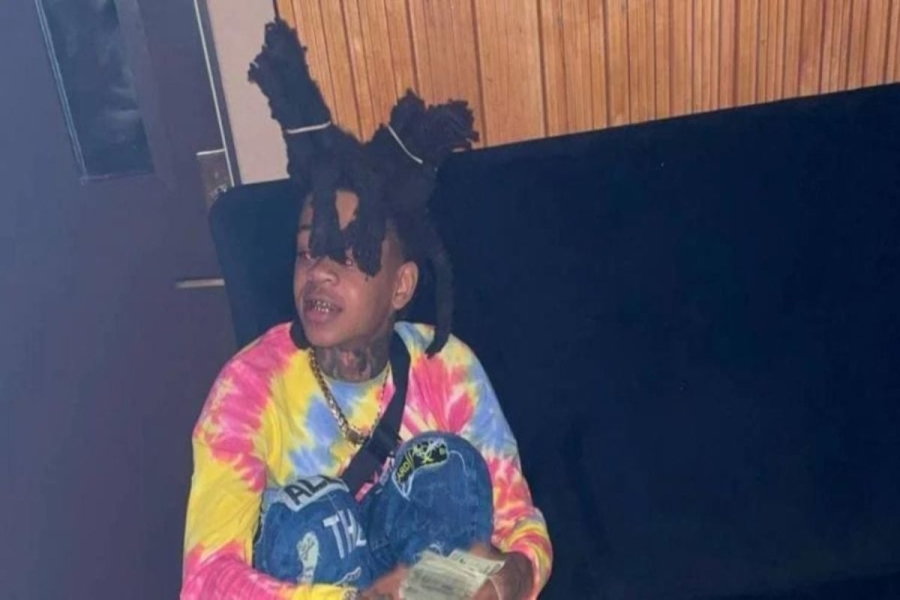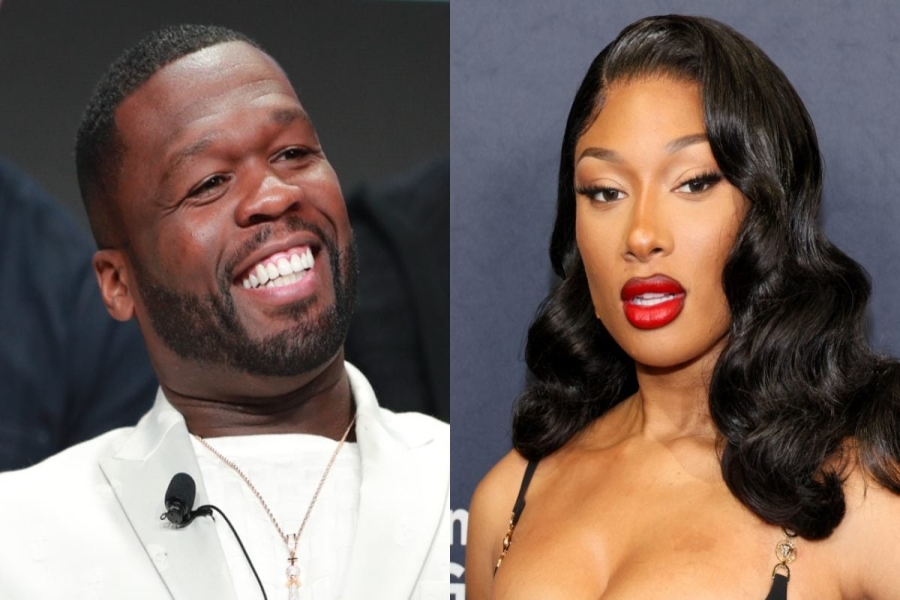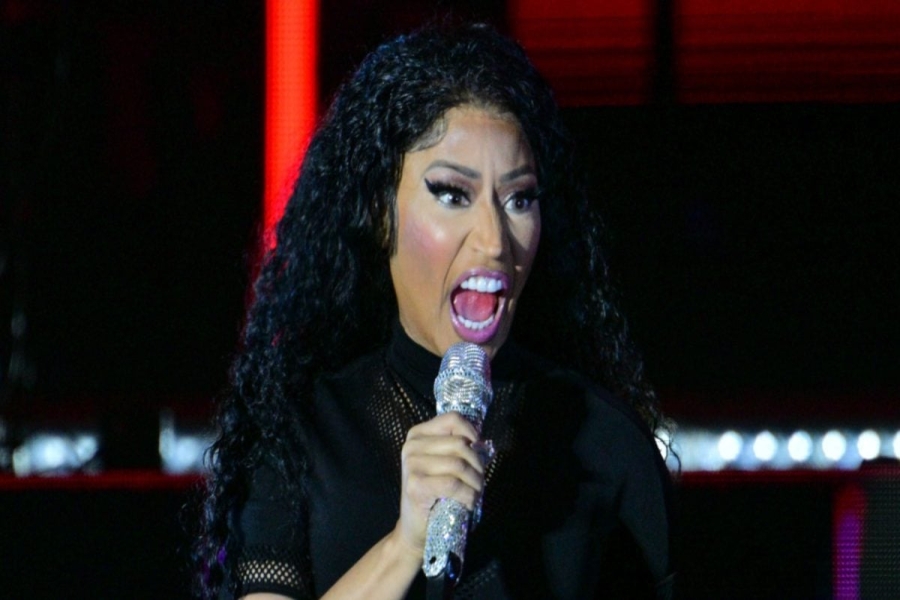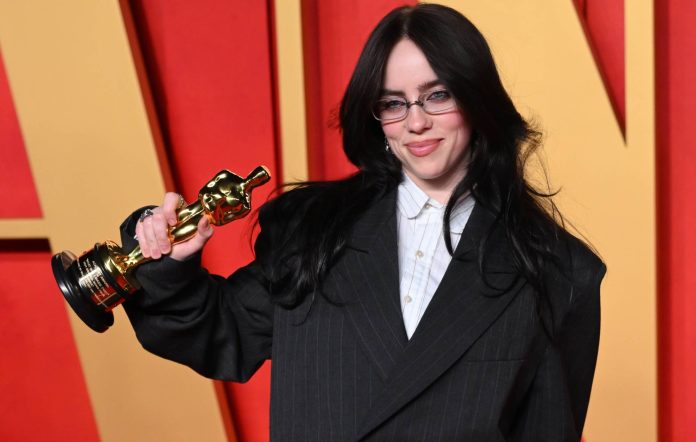To a certain degree, rock n’ roll is one big cosplay convention. And with that in mind, Jonathan Wilson deserves some kind of award for his stunning portrayal of ’77 David Gilmour as part of Roger Waters’ touring band over the last year. The North Carolina-born resident of L.A.’s Laurel Canyon was a natural fit for the role as well, and not just in looks and his chops on the electric guitar. Also take into consideration Wilson’s work as an artist in his own right, where he combines his love for pre-Dark Side Floyd with his spiritual connection to George Harrison’s Dark Horse years to create a sense of warmth on wax on par with his longtime cohort Father John Misty.
The 43-year-old Capricorn is back from the Australian leg of the tour in support of Waters’ excellent 2017 LP Is This the Life We Really Want? just in time to promote his own admirable third LP, entitled Rare Birds. It’s an album that takes the warm elements of his previous pair of albums, 2011’s Gentle Spirit and 2013’s Fanfare, and magnifies them with an ear toward the '80s revival we are all so enrapt in, augmented by guest turns from Lana Del Rey, the good Father himself and fellow Waters tour alumnus Lucius. Like Being There by Wilco, Rare Birds is an album about rock n’ roll, and what it means to believe in its gracious, flawed spirit in an era where such an emotional connection to the music you love is drifting further down the digital stream.
Currently Wilson is in the midst of his own national tour in support of the new album, and took time out before playing Chicago’s Lincoln Hall to speak with Billboard about making this most magnificent recording, one that is mandatory listening if you are in search of an immersive album rock experience in the 21st century. There’s sex, there’s saxophones, there’s spacey psychedelia. Headphones not included. Rare Birds is out now on Bella Union.
It must have been quite a ride to work so closely with Roger Waters these past couple of years, one could imagine…
I was so involved with him and the new LP since its inception; he feels like family to me at this point. I forget that we spent many, many days and many, many hours trying to make that thing. It was really tricky to play guitar on it, because if you bent a string a certain way you’d sound like Gilmour almost by osmosis. So if you go back and listen to the guitars it’s all very subtle. And usually I would be playing fucking like single notes. There were a couple of chances where I started to shred, but then it immediately sounded like I was trying to be like something that has already been done. But I think you gotta give Roger some credit for making something that doesn’t directly sound like his past but it does acknowledge it.
This Roger Waters tour had a very pointed, anti-Trump agenda, which surely irritated those of a certain generation who may have grown up on Pink Floyd and came to the show for the nostalgia trip, but as modern day Trump supporters were offended by the messaging throughout the concert. Did you notice a lot of fans getting up and leaving while you were onstage?
Oh, of course. We were expecting more of a pushback and more of a negative vibe when we were rolling into Kansas City or into Texas or wherever this tour went. But to be honest, there was a little bit of that. You’d get some people flashing you the bird and screaming and hollering, throwing shit onstage. Like, somebody threw a pretzel at me once. But basically, that wasn’t enough for them to walk out. They had to get their classic rock fix.
Are you a fan of the Roger Waters’ solo albums historically?
There are a couple of them, those being Radio K.A.O.S. and Amused To Death, that I haven’t had the chance to study them yet. I look forward to digging into both of them, though.
It’s interesting to see how an album like Radio K.A.O.S. will be perceived given the new way by which '80s production is now being heard by the younger generations. What are your thoughts on this kinder light being directed toward production techniques that were long vilified by the tastemaker set?
That’s a pretty deep question, bro (laughs). We could talk about that for a long time. But it really depends on if irony is involved, I guess. I can’t think of any examples of people who are really pulling it off in a way where it sounds like it used to because I think the gear is not the same. If you listen to “Faithfully” by Journey or something, those kind of drum sounds are wholly dependent on the gear and the producers on an album that probably cost them $700,000 to make or something like that. Or if you listen to something like the Mellencamp stuff and those giant fucking gated snare drums and stuff, I think people would like to have that now. Some of that shit sounds really great. I think the last time we had sounds that huge and that impactful I think were maybe the days of Brendan O’Brien and those giant snare sounds he got with like Stone Temple Pilots. Eighties production -- some of it, lots of it -- is extremely exciting, and it was totally groundbreaking because people were experimenting with all these drum machines and synthesizers and shit like that.
It is quite wild to go back and hear how someone like a George Harrison or a Robbie Robertson was trying to capture the warmth of their work in the '70s through this new recording equipment during that mid-to-late-'80s period.
A lot of that stuff was shit some of us were exposed to at a pivotal time, like the Clapton stuff. When I was growing up around 13 or 14, that guy was a big influence just because he was fucking everywhere. When his album Journeyman was out, that was a time when I was listening to a lot of him and Robert Cray and Jeff Healy and these people, and I was trying to aspire to be like this bluesy rock guitar player.
What do you make of the deficit of blues influence in a lot of today’s modern rock, or even that sense of warmth which exudes from your material as well as Father John Misty’s?
If you think about myself and Father John making these sister projects and working beside each other all the time at my studio, on my mixing desk and through my process, you will see how we go through a couple of extra steps. I can’t not do it -- using the tape machine, putting all the drums to tape and taking great care with all the cables and microphones -- and the only people that I’ll fucking hire are those who feel the same way. It’s a pain in the ass, though. It’s really hard to find people who can fix this shit and to source all the parts. You’ll have to go to eBay to find transistors and do all this crazy horseshit. But at the end of the day when you listen to Rare Birds or Pure Comedy, it definitely shows and it adds up. I get so pleasantly surprised when I listen to someone else who has done the same thing and you can hear they’ve taken the care and they had some great engineers. But then somebody said to me, ‘Well, doesn’t it bum you out that nobody is going to hear it the way you intend for them to hear it? It’s going to be played on their phone or their computer speakers or whatever.’ I said, ‘Well, you know what: When I listen to Rare Birds off my iPhone, I can still hear it. I can still hear that it sounds fucking good.’ If we would have started it on the computer and done it the fucking easy way, mixed it in the box….you don’t understand, I have a giant mixing console from 1976. It took 10 men to get that thing into my house. It sounds psychotic when I talk about it today, but back in the day that was what you did; you had no choice but to own all of this giant equipment. Now it seems like you are out of your mind to want to mix on an old console, but you can hear the difference.
Another interesting thing we are seeing these days, and Lana Del Rey’s appearance on Rare Birds is a testament to this, is how organic the relationship is these days with the modern rock world and the top 40 artists. Do you see that as well?
Oh, totally. And hopefully that will keep going. I had friends who helped out with the Harry Styles thing, which has a lot of Black Crowes-y, American rock vibes to it. I thought that was pretty cool, and hoped that maybe this will start a trend, where suddenly like Stonesy blues rock is the hot shit again. I have friends in the pop world who make that kind of music, and they sort of look to Josh [Tillman] and I for inspiration and they really love what we’re doing and try to occasionally involve us in stuff. But, you know, it’s funny: I’m not sure if the two things can truly co-exist.
From the sound of it, Rare Birds feels like it’s about your relationship with rock n’ roll. Is that the case?
To be honest with you, man, I really had to dig deep for this one, because I can’t really keep putting out records that come out to a mild impact. It's like, ‘Oh yeah, man, cool, thanks for that’ and then it disappears, which is kind of what happened with Fanfare. So I had to dig deep to find out why it was not connecting with more people. And my theory on it is that Fanfare is great, it’s cool and has a lot of stuff on it that I dig. But I also had an agenda there to include a bunch of older songs and I was still pushing the agenda of playing with the masters, which is why you have Mike Campbell, Benmont Tench, Jackson Browne, David Crosby and Graham Nash on there, which was fucking awesome. But that may only connect with someone like my dad, whereas a Pitchfork kid could literally give a fuck. That’s fine, and it was something I needed to do. But this time, I wanted to make something that was me; that was my thing. So that was the journey, and I think we got there.
Hopefully, for me, the production of this album along with the Roger stuff will help to put me over and create the awareness about me so I can keep doing it. See, because what happens is that right now I’m on tour that I’m financing and will go in the hole without proper promotion. And that’s what happened the last time. I finished 18 months of touring on Fanfare and I wound up 100 grand in the fucking red. The perception can be one thing, but the actual outcome can be something else entirely. You have to get to a crossover point where the thing can not only become profitable but also something you can continue doing through old age. You have to get there. And that’s pretty much what I’m doing. The only thing you can bank on these days is that the album will spread, and the word will spread.








